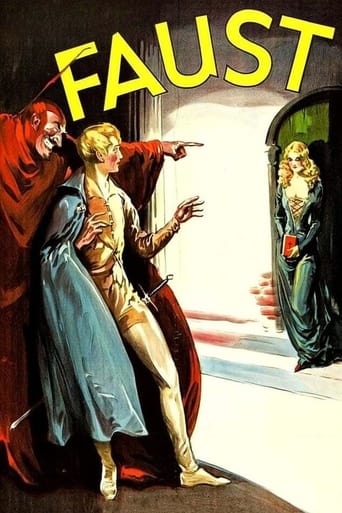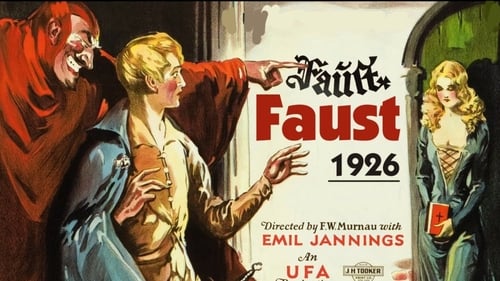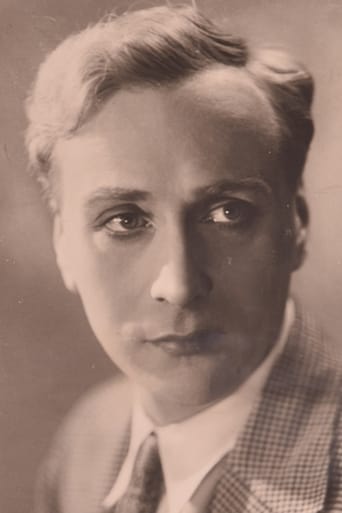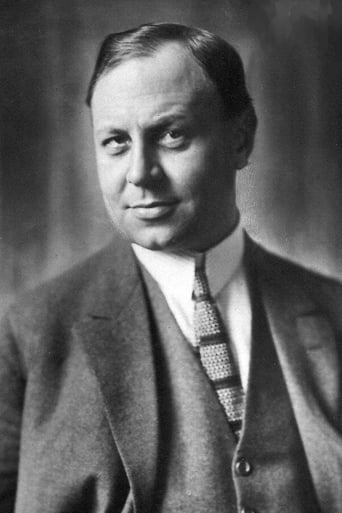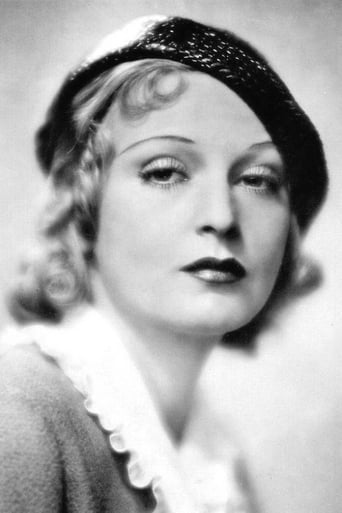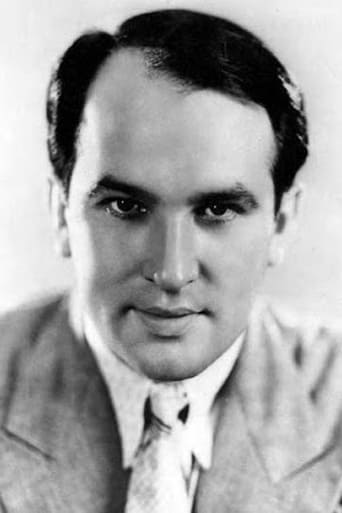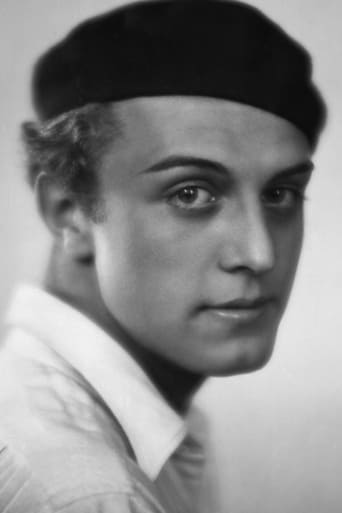EssenceStory
Well Deserved Praise
UnowPriceless
hyped garbage
Manthast
Absolutely amazing
Casey Duggan
It’s sentimental, ridiculously long and only occasionally funny
Horst in Translation (filmreviews@web.de)
"Faust" is a German silent movie from almost 90 years ago. Of course it is also still in black and white and the runtime differs depending on what version you have. The original ran for 85 minutes roughly, but the new restored version almost reaches the two-hour mark. In that case, it's not a good thing. The film drags a lot on several occasions and even if Goethe's story of Faus is a truly interesting one that I also enjoyed reading when we did it at school, it's just not enough material for a 120-minute film, at least not in this version. The director was Friedrich Wilhelm Plumpe, more known as Murnau, who worked on several of the most successful German silent films in the early days of movie-making and was probably second only to Fritz Lang at that point here in Germany. Murnau was a combat pilot in World War I by the way and no less than 6' 11" tall.Anyway, back to this film: The lead actor is a Swede that I have to say I am not familiar with. Jzst like Murnau, he died way too early. Emil Jannings plays the devilish character of Mephisto and he won the very first Academy Award not much later. The lead actress is the pretty (and) young Camilla Horn who enjoyed a prolific movie career in many decades after this one, especially the 1920s, 1930s and 1940s. And even if the trio did a decent job with their performances and certainly elevated the material, it is not enough to make up for the flaws of this film. All in all, not recommended.
Ryan F
I saw Faust last night at a special event at the Paramount theater in Seattle with live organ accompaniment. The hosts relentlessly hyped the movie, so when it started, I had high expectations. I was not disappointed. Faust wastes no time by explaining how portals from Hell opened up and wraiths are running free over the Earth. This is an instant hook, but then it gets better as a head angel makes a bet with the devil Mephisto. So what is there that could go wrong?This movie has world-class production design to complement that it takes place in an apocalyptic, post-biblical fantasy time. Personally, I'm not much a fan of the worlds typical to fantasy stories, but the one in Faust is original and creative.The story follows a young Faust chasing after women and happiness in his new, young body. He finally finds one girl who becomes his only goal. This is fine and tells a perfectly good story. My objection is that the beginning shows us angels, demons, the devil, and the plague. Then the story goes down to deal with small-scale issues, looking at Faust's corruption really close up. This isn't necessarily bad, and the story goes back to its large-scale issues at the end, which has plenty of emotional and physical violence to balance out with Act I. I found it distracting that the jump was made to smaller battles, but these smaller battles are on the emotional side, making them far more important and interesting.Though Faust isn't subtle with its themes, it tells a story that moves right along, despite being seen as "one of those old silent films." The acting can be appreciated without looking down on old styles or thinking them archaic. The movie is dark, but Satan himself is a source of humor in some scenes. I see a lot of people who don't want to watch anything pre-50's and 60's, but right back at the beginning of cinema, there's entertainment, emotion, sex, violence, and comedy present in the same movie. Thank you, Faust.
chaos-rampant
By 1925 UFA, German cinema's pioneer production company, was almost collapsing under the weight of mounting financial difficulties, having lost over eight million dollars in the fiscal year just ended. It was at this point that American film studios found the perfect opportunity they've been looking for to finally defeat their one opponent in the market of continental Europe. It was ironic that a film industry born out of the necessity of WWI and Germany's inability to provide American, British or French films in the years between 1914 and 1919 would go on to become Hollywood's number one opponent. Indeed Paramount and MGM offered to subsidize UFA's huge debt to the Deutsche Bank by lending it four million dollars at 7.5 percent interest in exchange for collaborative rights to UFA's studios, theaters, and personnel - an arrangement which clearly worked in the American companies' favor. The result was the foundation of the Parufamet (Paramount-UFA-Metro) Distribution Company in early 1926.This is only tangential to FAUST but important nonetheless to place the film in its correct historical context. Both as FW Murnau's last German film before he left for Hollywood and as UFA's most expensive production to that date. It is no wonder that within a year of accepting Hollywood as business partners, UFA was already showing losses of twelve million dollars and was forced to seek another loan, when FAUST, a film that cost them 2 million dollars alone and took six months to film only made back half of its budget at the box office. FAUST would go on to be succeeded by Fritz Lang's METROPOLIS as the most expensive German production but it remained FW Murnau's aufwiedersehen to Weimar cinema. He was one of many German film artists and technicians that migrated to sunny California following the Parufamet agreement (Fritz Lang would follow a few years later, having refused Goebbels' offer to lead the national film department for Nazi Germany, along with others like Paul Leni, Billy Wilder, Karl Freund and Ernst Lubitsch).Weimar cinema wouldn't make it past the 1930's and FW Murnau's career would come to an abrupt end with his death at 42 in a car accident, but FAUST, as the last German production, not only in nationality, but also in style and finesse, definitely deserves its place next to 1922's NOSFERATU in the pantheon of German Expressionism. Frontloaded in terms of spectacle and dazzling visuals, this retelling of Goethe's classic version of Dr. Faust's story is as slow paced and dark as Nosferatu but with the kind of fantastic, mystical and romantic blend that characterized German post-war cinema. A cinema aimed at repressed lower middle-classes which, in the absence of a national identity swept away by war, were now turning to a new cultural identity conscious of the social realities of the times. In that sense, Murnau's Faust is part escapism spectacle, part edifying fable on the corruption of evil and the redeeming qualities of love and forgiveness.And if the story is overwrought melodrama by today's standards, the magnificent sets constructed by UFA technicians and special effects work stand shoulder to shoulder with some of the best from the 20's. Mephisto looming black and gigantic over a town swept by plague is an iconic image etched on the same pantheon wall of German Expressionism as Count Orlok's shadow. The angels of death riding on their horses with beams of light shooting through them combines the dark fantasy of the production design with expressive lighting, the kind of which would eventually become shaped into film noir by directors like Otto Preminger and Fritz Lang. Gösta Ekman as Faust (superbly made-up as an old man to make even Welles green with envy) and Emil Jannings as Mephisto stand out among the cast.
John W Chance
You will never see cinematography like this in a sound or color film! Murnau's 'Nosferatu' (1925) pales in comparison to this visually fantastic masterpiece!The first half is a perfect supernatural tale of God and the Devil (Mephisto) wagering over the soul of man: if Mephisto can win Faust, all of Earth belongs to Satan. It is shown and told with such amazing photography, sets and acting. Check out the other reviews that describe the wonderment of all its stunning shots in detail. The final scenes are masterful as well: the death of Gretchen's baby and Faust's final salvation.Emil Jannings is so great as Mephisto it looks like the Devil is a sure winner. He steals every scene he's in, whether he's pure evil, puckish, Satanic or clownish. "The Snake Has All The Lines!" No wonder he was the first actor to receive a Best Actor Oscar! It made me want to see his other classic, 'The Last Laugh' (1924).The musical soundtrack perfectly matches the action and mood of every scene. Great!But---the middle really drags on too long as a love story between the now young and handsome Faust and the beautiful Gretchen, and there are some needless scenes of Mephisto being pestered by Marguerite's aunt seeking to be his wife.The movie picks up again in the last third as Gretchen is condemned for her affair with Faust, who sacrifices himself for her, and Mephisto loses the bet.The film is so staggeringly made we can forgive the boring middle parts, but I can only give it a 9, not a 10.
